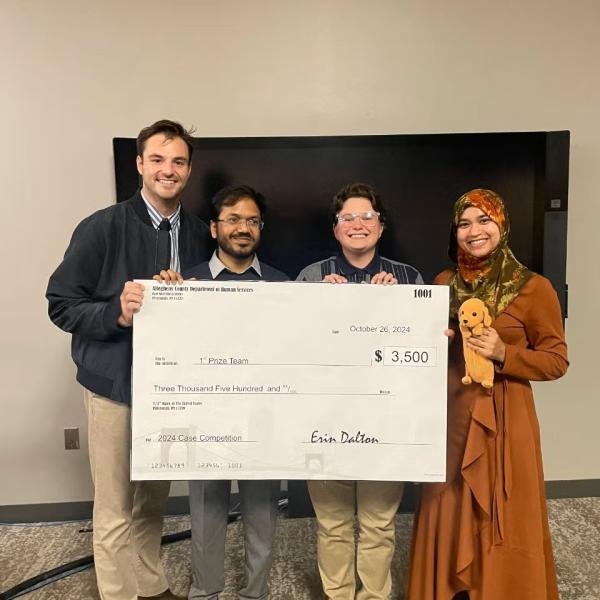Student Testimonials
“Being a student leader with Girls Who Code has been an incredibly rewarding experience. Facilitating workshops and mentoring young girls in programming has taught me so much about inclusivity and adaptability in education. Through this role, I’ve had the opportunity to empower young girls with coding skills, building their confidence and excitement for technology. It’s shown me firsthand the impact of community-driven learning and reinforced my commitment to making tech accessible for all.”
--Nikhita Vysyaraju (BS '25)
“Working with re:Bloom through the iServe program was the perfect opportunity to blend my interest in technology with some extra creativity. It was a great way to give back to female and minority-owned small businesses in the Pittsburgh community and I was excited about building connections on the re:Bloom team, including a presentation opportunity for the Board of Directors.”
--Sarina Saran (BS '26)
“It was really nice to see how I could apply knowledge I gained in the classroom to an outside, real-world opportunity while still balancing other coursework. For example, I would've never thought how useful learning Python was because I actually used Pandas for data analysis through this iServe opportunity. This experience definitely gave me a better understanding of what it's like using knowledge gained in class in a real-world setting.”
--Ifemi Olojo-Kosoko (BS '26)



